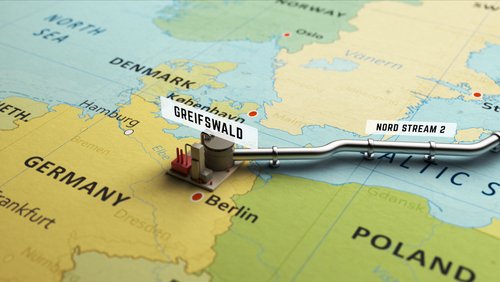Brussels (Brussels Morning) The US Senate is to vote on a proposal to impose sanctions on the Nord Stream 2 gas pipeline later today, while Germany continues to voice its opposition.
Republican Senator Ted Cruz is pushing the proposal, having made a deal last month with his counterparts from the Democratic Party to vote on the proposal before 14 January, Reuters reports.
In exchange for getting the vote by the end of the week, Cruz agreed to remove his hold-up of President Biden’s ambassadorial nominations.
The proposed sanctions require the support of 60 of the 100 senators in order to be passed, in itself an obstacle since the Senate is evenly divided between the two main parties.
Should the bill pass, the US would impose sanctions on the completed Nord Stream 2, which has yet to become operational since it awaits the approval of German regulators.
Sanctions would be imposed within 15 days irrespective of whether Russia advances on Ukraine. Cruz maintains that the move is necessary if the project is to be stopped.
Nord Stream 2, which is led by the Russian energy giant Gazprom, was developed to connect the gas infrastructure of Russia and Germany via the Baltic Sea.
Regulatory approval this year?
Five European energy companies have helped finance the pipeline. Among them is Germany’s Uniper energy company, whose CEO, Klaus-Dieter Maubach, predicted last week that the pipeline could acquire regulatory approval in mid-2022.
The US and several European countries are opposed to the new pipeline from Russia to Germany, arguing that the project would deprive Ukraine of transit fees, while it would afford Russia greater leverage over Europe.
Democratic Senator Robert Menendez proposed a bill earlier this week to sanction individual Russian military and government officials, as well as banking institutions, were Moscow to attack Ukraine.
Germany’s Defence Minister, Christine Lambrecht, alluding to the tensions between Western countries and Russia on Thursday, cautioned that “we should not drag [Nord Stream 2] into this conflict.”
“We need to solve this conflict, and we need to solve it in talks – that’s the opportunity that we have at the moment, and we should use it rather than drawing a link to projects that have no connection to this conflict”, she opined.




